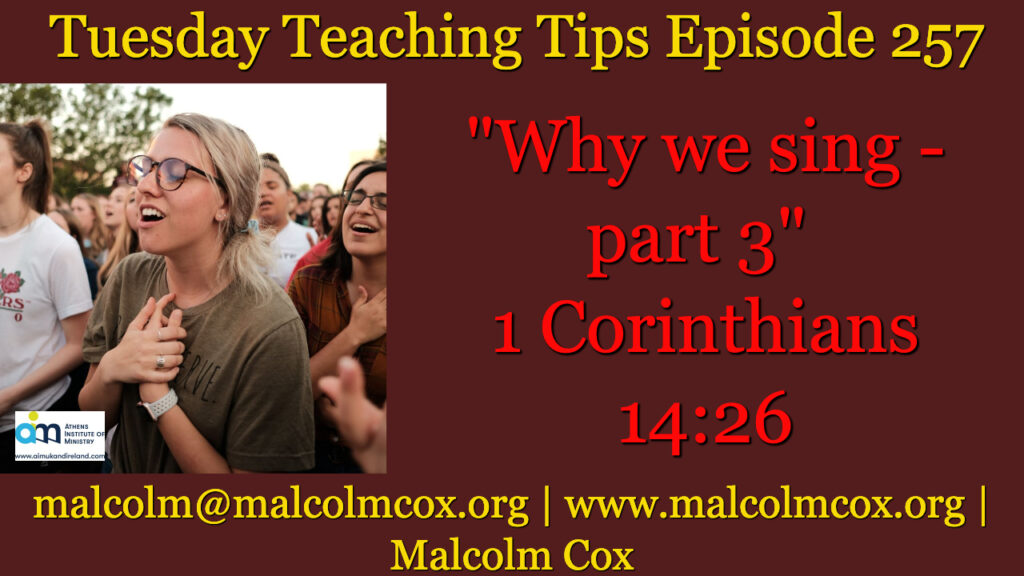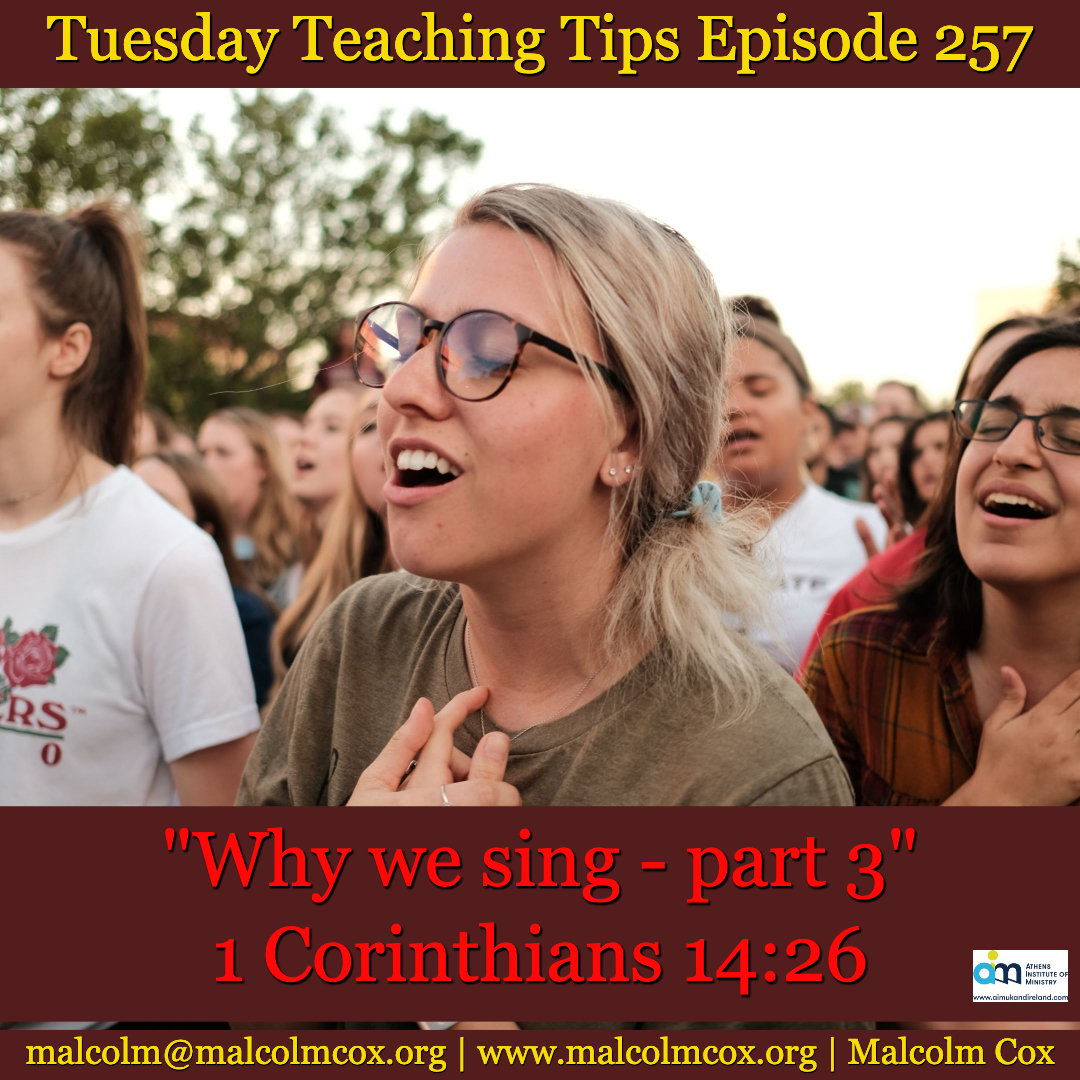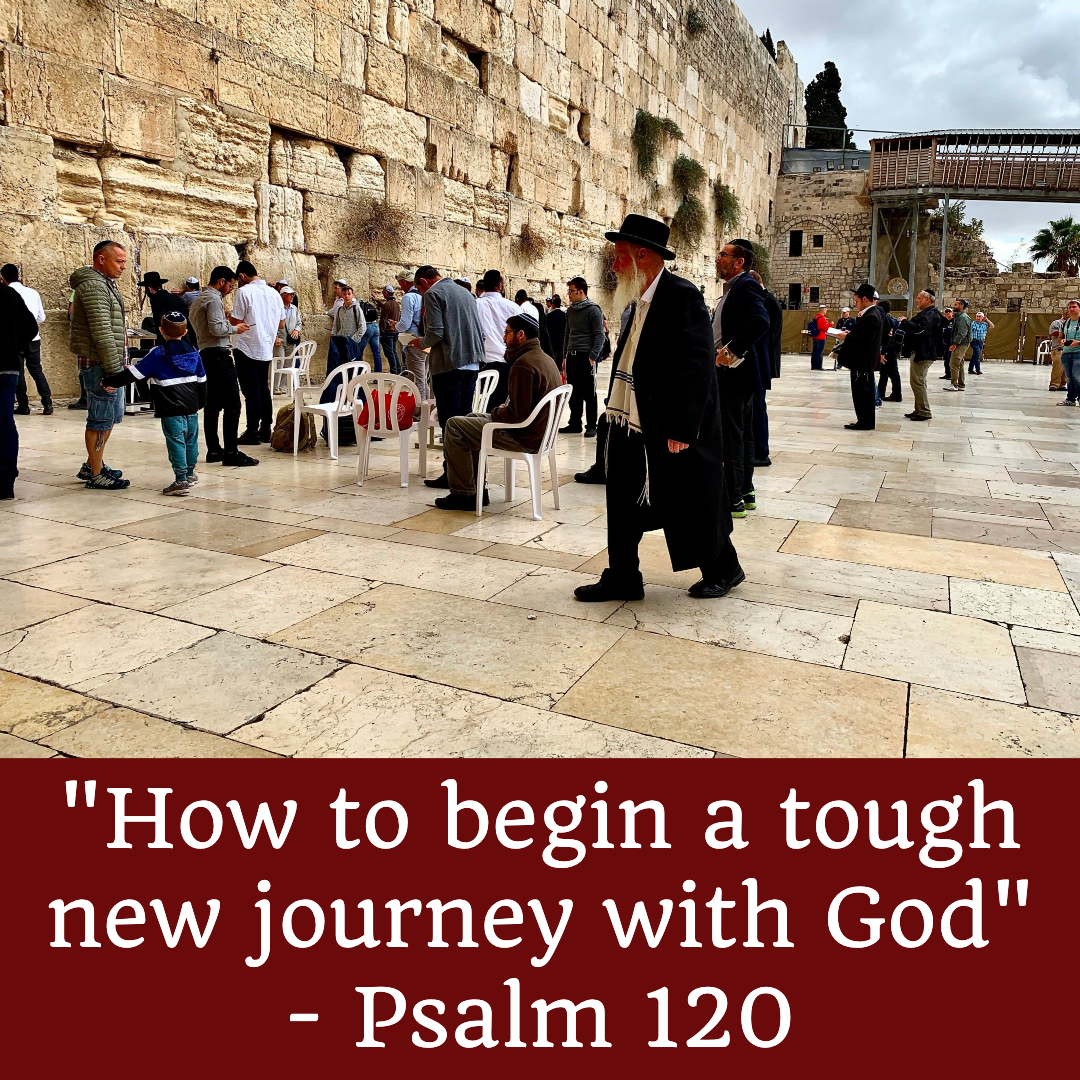Tuesday Teaching Tips | Episode 257

Why do we sing?
We have been answering the question, “Why do we sing?”. In the last two Teaching Tips I made some comments on Eph 5:18-21 and Col 3:16. Today let’s explore a few more thoughts on singing based in 1 Corinthians 14.
“What then shall we say, brothers and sisters? When you come together, each of you has a hymn, or a word of instruction, a revelation, a tongue or an interpretation. Everything must be done so that the church may be built up.” 1 Corinthians 14:26
Background
The church in Corinth had a lot of problems. They struggled with divisiveness, looseness regarding sin, attempts to put leaders on pedestals, drunkenness during communion, chaotic church services and, overall, a lack of love.
As Paul gets towards the end of his letter he focuses on helping them to change the way they think about their church services. He hopes that God will be glorified and visitors would have, “the secrets of their hearts are laid bare”, and then they would, “fall down and worship God, exclaiming, “God is really among you!”” 1 Cor 14:25
Much preaching and teaching focuses on the Corinthians’ abuse of prophecy and tongue speaking. Not much is said about their singing. It is true that we only have a short mention of this in verse 26. However, I think it’s instructional and helpful for us to reflect on.
1. Choosing songs was a Congregational responsibility
Paul does not rebuke them for tongue-speaking, bringing a revelation, prophecy or a word of instruction. Neither does he rebuke them for bringing “a hymn”. Who was bringing these hymns? It is the same people who might also have a revelation of a prophecy.
It looks rather as if they did not have a worship team. At least not in the way we understand it. Perhaps no one chose the songs for that Sunday in advance. Instead, the members contemplated what God was teaching them and showing them during the week and brought songs to the rest of the congregation so that they could sing them together. Perhaps they were hymns they already knew, perhaps they were hymns they made up.
We cannot know the details for sure, and some of this may be cultural and not fully appropriate to our situation. However what I take from this is that the congregation didn’t delegate the responsibility for singing to musical specialists. Remember, he does not say ‘each of you worship leaders has a hymn’, he says ‘each of you has a hymn’ indicating that he is talking to all the members.
2. The Congregation Came to the Gathering Thinking About Songs and Singing
It’s clear that the congregation sang as a body, and that each member was aware that they potentially had something to contribute. It may not be that every member brought a hymn regularly, but it was a normal part of the church culture that various people would bring hymns. If they were going to do that, it means that they didn’t start thinking about singing on Sunday morning. They were thinking about hymns during the week.
Imagine if, from Monday to Saturday, you gave time to thinking about the songs we might sing on Sunday. What might happen? Perhaps it would help us to be more fully engaged with the singing when we gather on Sunday morning. What could help us with this?
One way is to incorporate songs into our personal devotional times during the week. You could listen to songs, sing them yourself, or read the words of a song and pray through them. That’s rather like praying through a Psalm isn’t it? In doing so we will connect our hearts to God and find ways of expressing our love for him in song.
In their book “Sing!” Keith and Kristyn Getty say this,
“Worship isn’t primarily about music, techniques, songs or methodologies. It’s about our hearts. It’s about what and who we love more than anything.”
If we connect our hearts with God in song during the rest of the week I am certain it will enhance the expression of our joy when we sing on Sunday.
Ideas and Questions for Reflection
1. Someone said, “Your voice may not be of professional standard, but it is of confessional standard.” What does that mean to you?
2. God cares that you sing, but he does not care how well you sing. How does that shape the way you think about singing?
3. The Gettys also say, “Christian singing begins with the heart, not on the lips.” What does that mean for you?
Please add your comments on this week’s topic. We learn best when we learn in community.
Do you have a question about teaching the Bible? Is it theological, technical, practical? Send me your questions or suggestions. Here’s the email: [malcolm@malcolmcox.org](mailto:malcolm@malcolmcox.org).
If you’d like a copy of my free eBook on spiritual disciplines, “How God grows His people”, sign up at my website: http://[www.malcolmcox.org](http://www.malcolmcox.org/).
Please pass the link on, subscribe, leave a review.
“Worship the LORD with gladness; come before him with joyful songs.” (Psalms 100:2 NIV11)
God bless, Malcolm



